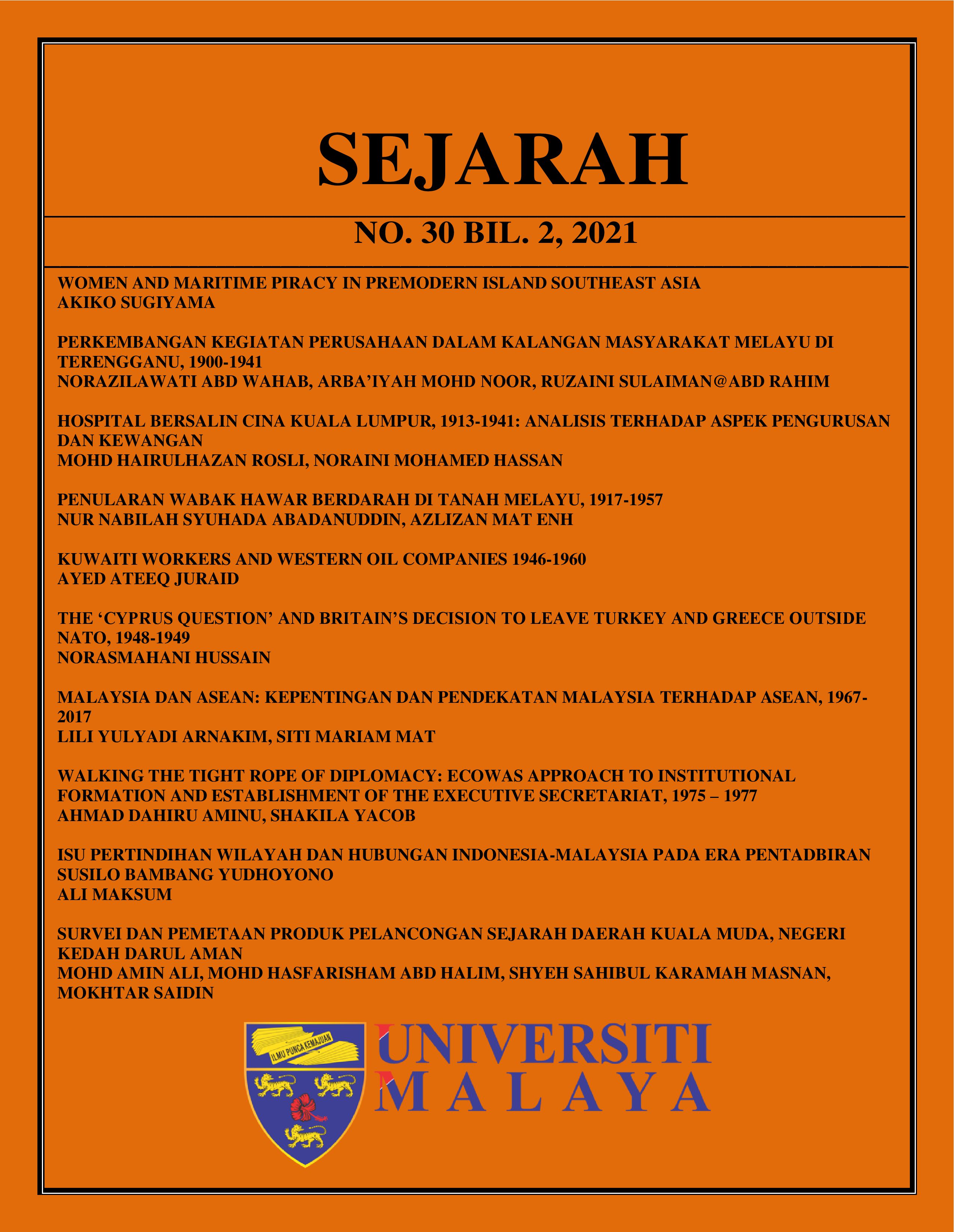THE ‘CYPRUS QUESTION’ AND BRITAIN’S DECISION TO LEAVE TURKEY AND GREECE OUTSIDE NATO, 1948-1949
DOI:
https://doi.org/10.22452/sejarah.vol30no2.6Keywords:
NATO, Britain, Turkey, Greece, membership, CyprusAbstract
The North Atlantic Treaty Organisation (NATO) is an intergovernmental military alliance of unusual geographical membership that was signed on 4 April 1949 in Washington D.C. Twelve countries famously became founding members, but Turkey and Greece were surprisingly not included. In point of fact, these two Mediterranean countries were arguably victims that suffered from the ‘aggression’ of the Soviet Union in the early post-Second World War years and had some strong reasons for being included in NATO. The literature usually focuses on the geographical area of Turkey and Greece and a Mediterranean Pact in explaining why Britain refused to invite these countries to join NATO during its formation years. However, when placing more attention to the perspective of British Foreign Secretary Ernest Bevin and his Foreign Office regarding this rejection issue, the ‘Cyprus question’, which refers to a major dispute between Greece and Turkey over Cyprus, also influenced them in tightening Britain’s decision to leave Turkey and Greece outside NATO. This study is using qualitative method like archieval data. The finding of this study shows that British documentary analysis illuminates the degree of influence of the problem of Cyprus on British considerations of western security. In particular, this paper offers analysis of British Foreign Office objections to the admission of Turkey and Greece to NATO before NATO was successfully established. Previous researchers have largely drawn attention to Britain’s general views on the structure and membership of NATO, and on Britain as a major instigator of the alliance. This paper, however, will discuss the ‘objection issue’ towards Turkey and Greece from the point of view of Britain, particularly from the perspective of the ‘Cyprus question’.
Received: 22 August 2021
Reviewed: 29 August 2021
Accepted: 6 December 2021


